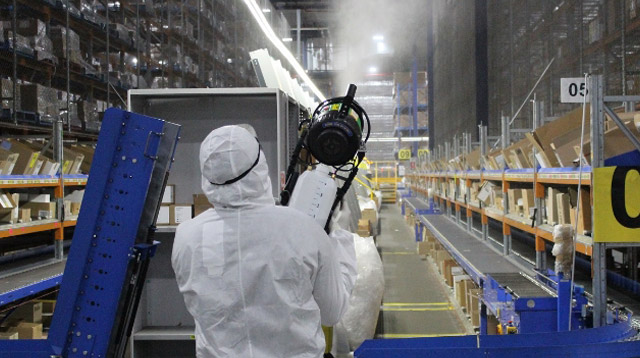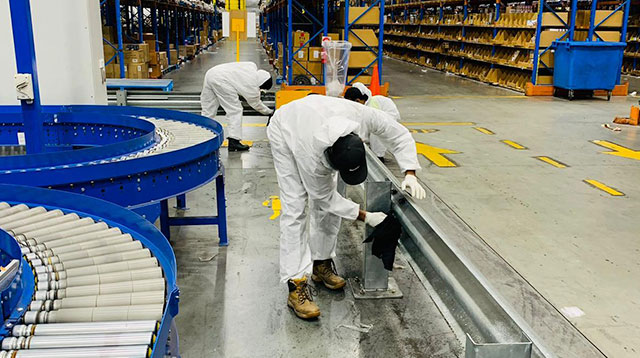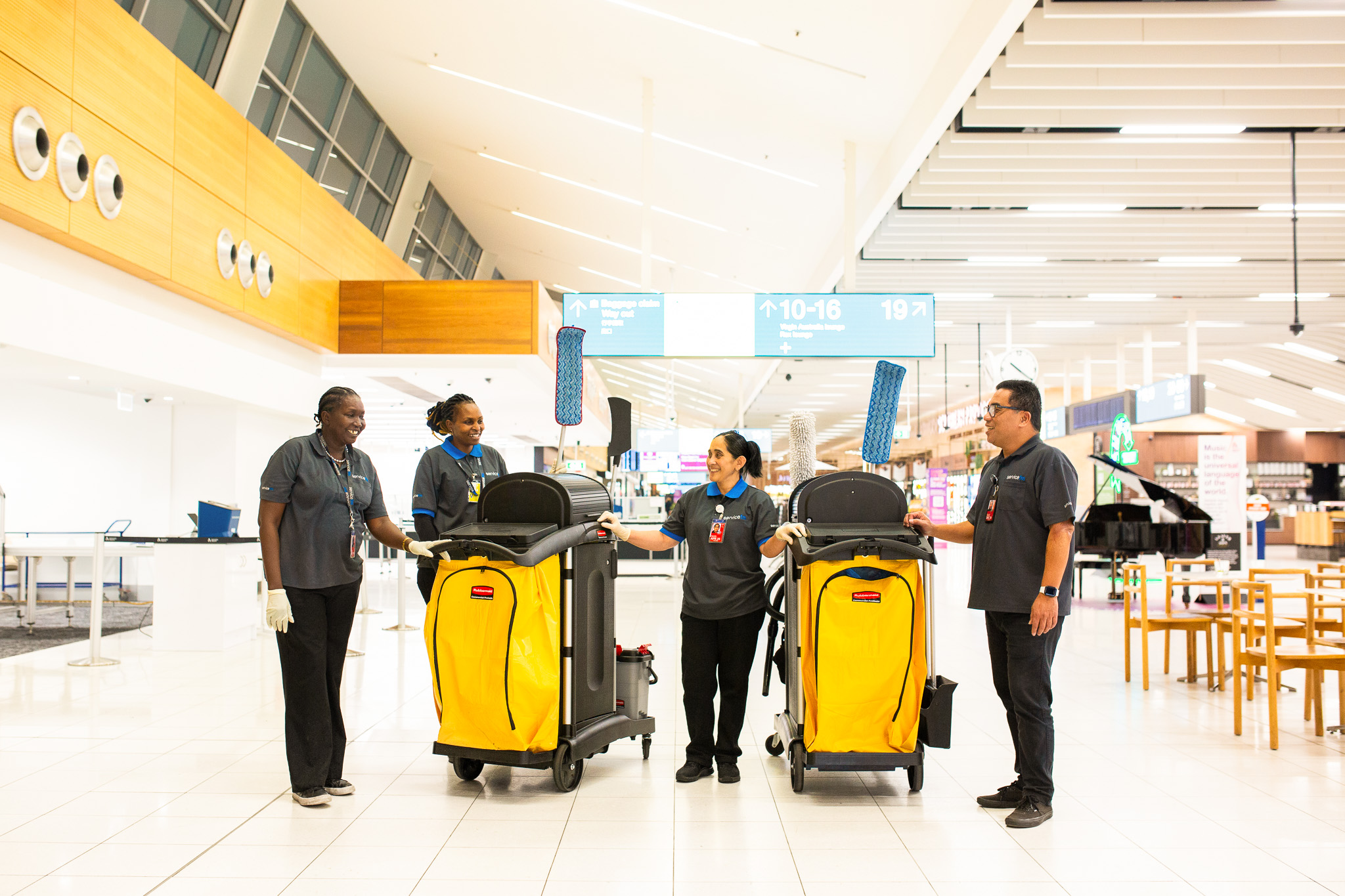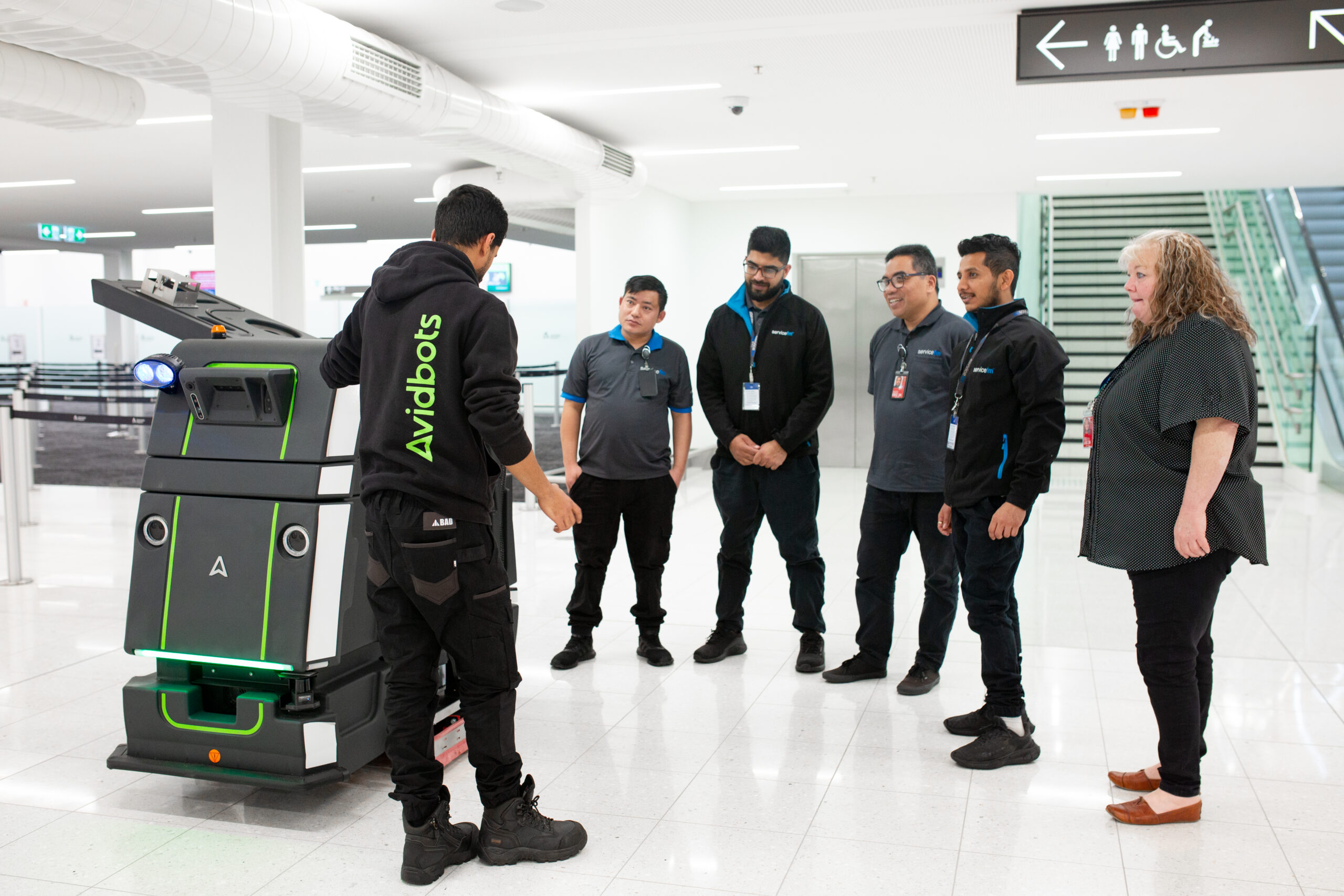Right across Australia, it is important to know that, in the event of a virus outbreak, the people you hire to provide infection control are doing the job properly.
COVID cases are still a threat to the health and safety of Australians, but bacterial outbreaks, such as norovirus, have always been a concern, particularly for aged care and health care sectors.
At the peak of Melbourne’s COVID outbreak last year, an image of cleaners wearing their personal protective equipment (PPE) while socialising caused debate when it surfaced on a community Facebook page.
The cleaners had been conducting infection control at a Mernda business where there had been a virus outbreak.
According to the Herald Sun’s story:
“The photo has attracted hundreds of comments online with some labelling the actions of the workers ‘so bad’ but others believing it was not a big deal, and asking how the person who posted the photo knew the workers hadn’t changed their gloves before sitting down”.
Without judging the cleaners or the company involved, as we don’t know the circumstances, it’s worth noting the processes that should be followed when exiting an outbreak clean of any type.
Responsible commercial cleaning services, particularly those working in aged care and health care sectors, follow a very strict Safe Work Procedure for the end-to-end completion of an infection control job.
The final stages of the clean are among the most important as they include the removal of PPE gear and disposal of cleaning equipment used in the job.
The following procedures reflect the guidelines of the Australian Government Department of Health and the Department of Health and Human Services Victoria:
Firstly, at the conclusion of an infection control job, all disposable cleaning materials, including mop head, are put in a sealable plastic bag (at ServiceFM, we double bag just to be sure).
The plastic bag can then be disposed of into a general waste bin with a closing lid.
Then comes the removal of the PPE gear worn by the cleaners.
PPE is removed and disposed of in the following order:
- Remove and dispose of gloves in a plastic bag.
- Wash hands with soap and running water (40-60 seconds), or use an alcohol-based hand rub (20-30 seconds).
- Remove and dispose of apron/coveralls and place them into the plastic bag.
- Wash hands with soap and running water, or use an alcohol-based hand rub.
- Remove protective goggles/face shield by tilting the head forward and lifting the earpieces. Avoid touching the front surface of the eyewear/face shield. Reusable protective eyewear should be placed into a container and washed in detergent and water and allowed to completely air dry prior to reuse; Wash hands with soap and running water, or use alcohol-based hand rub.
- Remove and dispose of the surgical mask, ensuring that the front of the surgical mask is not touched. Remove the surgical mask by holding the elastic straps or ties. Place it in the plastic bag.
- Wash hands with soap and running water, or use alcohol-based hand rub.
- The plastic bag (containing disposed-of PPE) can be placed into a general waste bin with a closing lid.
After all this, the cleaners wash their hands thoroughly with soap and running water for 40 to 60 seconds.

As you can see, it’s a thorough process designed to ensure there is no cross contamination or risk of a further virus outbreak, which would not only defeat the purpose of the infection control clean, but put lives at risk.
At ServiceFM, we have undertaken many infection-control cleans after suspected or confirmed exposures to coronavirus and other bacterial infections.
ServiceFM General Manager (Soft Services), Kas Samarawickrama, was interviewed by the Herald Sun to explain how a cleaning process should occur.
Our infection control process includes both terminal and touchpoint cleaning. Our terminal clean includes the use of Nanocyn, a non-toxic, hospital-grade disinfectant that has been registered by the Therapeutic Goods Association as killing viruses such as COVID and norovirus within just 30 seconds.
Nanocyn is highly effective against these diseases, as it is sprayed, effectively killing the airborne disease.
For more information about our infection control services, visit here.






